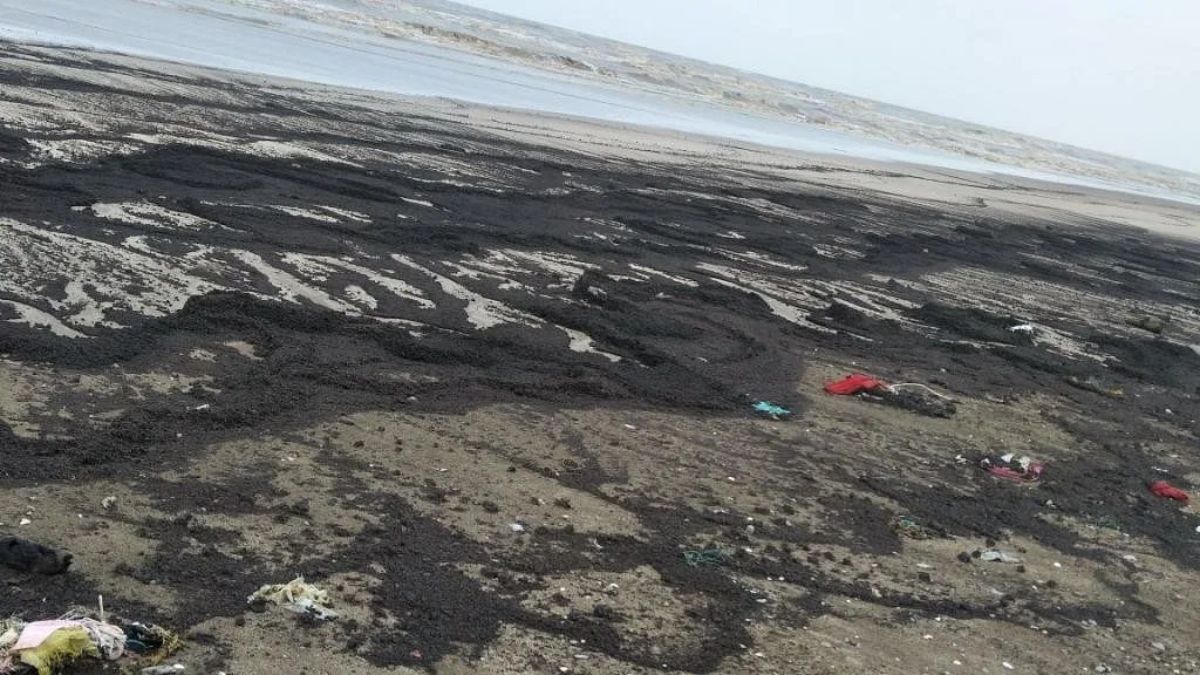India to Implement Coastal Oil Spill Rules
The Brackish Water Research Centre (BWRC) in Surat, working on the conservation of coastal environment and coastal ecology since 2003 and the Coastal Conservation Fishermen Action Committee in Valsad, working for the welfare of the traditional fisherfolks community and for coastal communities had filed a petition with the NGT over the oil spill pollution in the Indian coast, especially in south Gujarat in 2021.

Advertisement
Surat : For the first time, the Indian coast will soon have rules for oil spill pollution under the Environment Protect Act 1986 by the MoEFCC. Thanks to the legal fight by the fishermen and environmentalists from Surat and Valsad districts respectively, the technical subcommittee constituted by National Green Tribunal (NGT) has asked the Central Pollution Control Board (CPCB) to formulate rules for oil spillage and tarball pollution with notification by MoEFCC under EPA.
The Brackish Water Research Centre (BWRC) in Surat, working on the conservation of coastal environment and coastal ecology since 2003 and the Coastal Conservation Fishermen Action Committee in Valsad, working for the welfare of the traditional fisherfolks community and for coastal communities had filed a petition with the NGT over the oil spill pollution in the Indian coast, especially in south Gujarat in 2021.
In this case NGT has formed a high-level joint expert committee involving MOPNG, MoEFCC, Coast Guard and Secretaries of Environment and Forest Departments of State of Maharashtra, Gujarat and Goa. etc. The joint committee has constituted a technical subcommittee to assist the case which is highly technical in nature.
The sub-committee has opined that it is very hard to find the source of oil pollution in sea but have asked CPCB to formulate the draft rules for polluted coasts and creation of funds with contributions of stakeholders. The rules will provide the implementing, monitoring, auditing and reporting mechanism. This rule will be notified by the MoEFCC under EPA after finalisation. The MoEFCC has filed this Technical Sub Committee decision in NGT as status report on October 17, 2024.
These rules will have a steering committee comprising of representatives from the Ministry of Environment, Forest and Climate Change (MoEFCC), Ministry of Petroleum and Natural Gas (MoPNG), Ministry of Ports, Shipping, and Waterways (MoPSW), and Other stakeholders.
Every year oil spillage incidents had been taking place on the coast of South Gujarat, Maharashtra, Daman and Goa. This has polluted the sea and in the form of tar balls the oil had been deposited on the coast and also polluted the entire coastal area. During the monsoon season the oil spillage incidents have been observed and reported from the year 2009 to 2021 regularly as well as fish catch has been affected.
The fisherfolk are suffering due to this oil spillage pollution. The source of oil was not found and coastal pollution continued due to the oil spill. The responsible one had not been caught and not made accountable. No actions had been taken to remove the tar ball and its deposition even after so many complaints.
Monsoon season is the breeding season of the fishes and during every year in the monsoon season the tar balls were coming on the coast, Therefore, fish, marine biodiversity and aquatic creatures were affected. Because, the tar ball contains heavy hydrocarbons, PAH (polycyclic aromatic hydrocarbons), heavy metals, carbon components etc which are defined as hazardous chemical waste and it should be disposed as per the rules in the disposal facilities.
Various complaints had been filed in the government regarding the oil spill problems that occurred in the entire southern-northern coastal area. However, no actions had been taken by the central government and state government till date.
The Indian Coast Guard is executing the National Oil Spill Disaster Contingency Plan and administration of the coastal areas is being done by the district collector and Gujarat Coastal Zone Management authority. Pollution is handled by the State Pollution Control Board and the Central Pollution Control Board. The oil was fingerprinted as decided in a meeting of the Central Pollution Control Board and the concerned departments to find out the source of the pollution coming from the sea outside the territorial waters’ boundary of India. However, every year, all the state and central government agencies had completely failed to take any action on finding the source of this oil spill and failed to prevent tar balls pollution over the coast.
Advertisement

